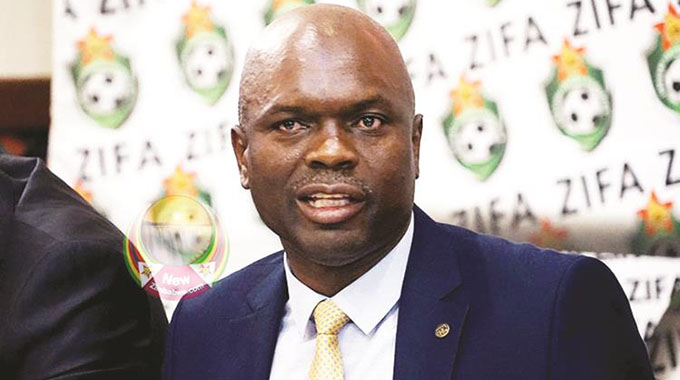Civil society’s attempt to usurp State powers must be condemned

Ranga Mataire Writing Black
Since the 1980s, the world has seen a resurgence of global neo-liberal agendas dominating the intellectual, political and moral space and vision.
One of the tragic consequences of this unrestrained liberal domination is the notion of a failed state and assumption of unblemished image of success of civil society or non-governmental organisations.
There is a fervent attempt to demote the State in favour of civil society that is often presented as the moral compass that should be financially supported vigorously.
Many must be aware of the boisterous declarations by some Western embassies that they are the biggest donors in Zimbabwe.
However, much of this financial support is not channelled to the State, but goes to civil society and non-governmental organisations. The State is often viewed as morally inept.
A regrettable fact that has emerged over the years is that the discourse of a “failed state” and the “successful civil society” has been globally constituted and that global constitution of “failure and success” betrays more an ideological preference than a real description of the actuality on the ground.
Without exception across the whole continent, but more pronounced in Zimbabwe, is the fact that Western influence distort the local evolution of a fair partnership of civil society and the State.
The portrayal of the State as “failed” and civil society as “success” is often a discourse constructed by external actors who often negate the right of local actors to frame and define the discourse based on their knowledge systems and cultural norms.
The result of this contemptuous attitude of external players towards local homegrown NGOs has been the manufacturing of a new political economy through donor funding where the State and civil society become involved in strains and clashes rather than promoting mutually beneficial partnerships and social cohesion.
The most saddening part of Western cynical attitude towards developing nations like Zimbabwe is that donors bring in the funds and consultants to shape civil society according to their (donors) own image.
NGO-dom in effect becomes something like a new social space for making a living. A casual observation of local non-governmental organisations and civil society groups that clamour the most about corruption, transparency and human rights points to a situation where personnel is motivated more by self-enrichment rather than genuine concerns for the citizens’ welfare.
As Africans, we need to robustly contest and question the Western mode of constituting civil society and State relations in terms of the frames, narratives, discourses, rhetoric and metaphors of “failure and success”.
We need as Africans to come up with a different development of civil society based on local definitions, knowledge and cultural conventions.
Ethiopian intellectual guru, Professor Mammo Muchie believes that there is need for a “Pan-African constitution of the State and society nexus (which has) the advantage of making Africa’s interest at the centre of all development initiatives.”
Prof Muchie is of the belief that Pan-Africanism builds upon the knowledge and life worlds of Africa’s pristine communities provides the shared anchorage of values for constructing ethically worthy and locally rooted and competent institutional arrangements that will promote the concept of free and self-reliant continent.
How something is constituted defines how its framed, set parameters, suggest agenda, help select policy options and in the case of Zimbabwe legitimises outside intervention especially by those who are able and can manufacture, name and control the narrative or discourse.
Post-colonial Zimbabwe has been characterised by a resistance by the revolutionary State that came out of a protracted liberation war to the Western narratives that sought to define who we ought to govern ourselves.
Most of these narratives or discourses are promoted through non-governmental organisations and since they are externally imposed, they exclude indigenous concepts and local knowledge systems.
At the core of these externally imposed discourses is the attempt to reject and undermine the core of native-self-confidence.
The idea that development must always be initiated by outsiders, or that outsiders, particularly the West, is the epitome of good governance is often reflected in the attitude of some post-independence opposition figures who deliberately invite sanctions on Zimbabwe to force the Government to be amenable to the West’s imperial interests.
Colonialism brought with it the discourse of “civilising mission” and the “white man’s burden” to shape Africa’s political and economic future. In the post-colonial period, the discourses of “the third word” and “democracy” have dominated the discussions in the NGO corridors.
Africans are presented as lacking agency while the West is made out to possess agency, the knowledge, the freedom and power to set the agenda and select the terms of intervention. The colonised, the underdeveloped, the non-Western democratic arrangements are being defined as the objects of intervention and not the subject of history.
Beginning around the 1990s, “civil society” and “good governance” were part of the discourses promoted along with globalisation, economic liberalisation and political democratisation in Africa. Civil society was and is still presented as the key link between economic liberalisation and democratisation and the weakness of the civil society is often blamed on the effects of the past development strategies of the post-colonial state.
Civil society has thus become one of the most prominent global concepts that have been promoted by every spectrum of thinking and belief. It has become everything and nothing — a grubby concept being brushed to give legitimacy to all manner of interests groups that are not core government and business actors.
Ernest Gellner, one of Europe’s own intellectuals described by The Independent “as one-man crusader for critical rationalism” calls civil society a “dusty term, drawn from antiquated political theory, belonging to long, obscure and justly forgotten debates.”
Indeed, civil society is an idea, now repackaged as novel with a plethora of terms such as revival, renaissance and re-emergence in the last four decades or so.
Africa needs Pan-African solidarity in dealing with the pervasive and subversive intrusion of civil society and some NGOs. We must resist the temptation to let donor power shape, generate and inter-nationalise domestic political institutions, agendas and actors through money.
The partnering of the State, society and market triad based on the concept of emancipated Africa can play a pivotal role in spreading forms of governance that promote true development.









Comments